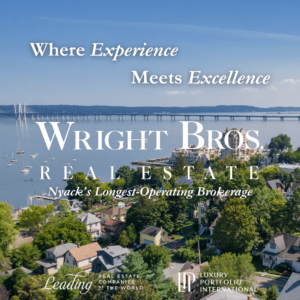
Editor’s Note: On Dec 17, the Upper Nyack Village Board unanimously voted to abandon a proposed zoning amendment that would have allowed residential development at Petersen’s Boatyard.
by Trina Hunn
Upper Nyack, Dec 16 — I live in Upper Nyack in the historic Van Houten Landing neighborhood and practice law in New York City. My family moved here two years ago from South Nyack and has lived in the area now for almost ten years. We love this town, its eccentricity, its deep sense of community, and its beauty. One factor that influenced us in purchasing our home in Upper Nyack is its location within walking distance to the historic Petersen’s Boatyard. We have even enjoyed the pipe dream that one day we would own a boat that would be moored steps away from our home at the boatyard.
While I admire the tenacity of the Van Houten Landing Association in fighting the proposed zoning change of Petersen’s Boatyard, and while I would prefer that the boatyard be preserved forever in its present form, I respectfully disagree with the neighborhood’s opposition to the proposed zoning change. The fact is, the owners of Petersen’s Boatyard have the right to sell their property as a boatyard to any willing buyer, whether that buyer intends to put the property to marine use or not. While many residents have complained that the boatyard owners have never “listed” the property for sale, we cannot be sure whether this is true or not. Whatever the facts, there is no legal requirement that the boatyard owners formally “list” their property for sale before closing on a deal with a willing buyer, and it’s naïve to think that this is a necessary part of the process. Indeed, if a buyer stands in the wings ready, willing, and able to buy the property at a reduced rate for marine use, why wouldn’t Petersen’s sell the property now, rather than wait for the process to play out and pay the costs associated with a zoning war with an unpredictable outcome (plus a brokerage fee)? Whatever the facts, once the property has been purchased at the fair market value as a boatyard, the new owners will have the right and legal recourse to pursue any type of zoning change for the property that the law allows. I have spent hours of my own time doing legal research on this issue and feel confident that the boatyard property could be put to any number of uses that are not as desirable as the current proposal of eight to ten luxury homes. I encourage the Board of Trustees to obtain its own legal counsel on this point if they have not done so already. A zoning change ‘€“ be it commercial, residential or industrial in nature ‘€“ may impose far greater costs on the community than the luxury homes proposed under the current plan. And, once the property is sold, the village will have lost control over the scope and scale of the project. Let’s not waste that opportunity.
I implore the community to view the proposed zoning change as something other than a zero-sum game. In exchange for granting the owners the privilege of a residential zoning change, the village should demand accommodations that would preserve some aspect of the historic marine use and public access. Wouldn’t a mixed-use zoning change better serve everyone’s interest rather than a complete ban on residential development on the property? Couldn’t this overtaxed and under-funded community use the tax revenues? Isn’t it time to engage in good old-fashioned horse-trading? Whatever the well-meaning sentiments of the community, those sentiments do not change the fact that the law generally protects the interests of property owners to dispose of their property in the way they see fit, even if that requires costly litigation. Let us not forget, the Village of Upper Nyack does not own this property; it merely regulates the ways in which the property may be used, and its ability to do even that is limited.
The Mayor and the Village Board have a fiduciary duty to act in the best interest of its residents, even if that interest is not politically popular. They also have a duty to explain to the community the meaning and scope of any proposed zoning text changes and to articulate how those changes will be implemented and monitored. In any event, I trust that the Board of Trustees has consulted with an attorney and understands the ramifications of the complex decision that it faces. If the Village Board believes that there is even a slight possibility that the boatyard will be developed in a high-density commercial or residential fashion or put to other unsuitable uses contrary to the long-term interests of the Village, then it should grant the requested zoning text changes. The Board of Trustees should then endeavor to sell that plan to community as the best possible alternative.
Trina Hunn is a NYC attorney and a resident of Upper Nyack, NY.
Source: Journal News, 12/18/2009
Photo Credit: Mark Gado, truTV








